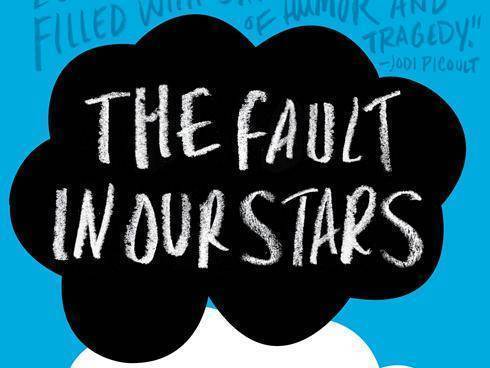With the upcoming “The Fault in Our Stars” DVD debut next Tuesday the 16th, I thought it’d be a suitable occasion to review this long awaited film adaptation*. Many “TFiOS” fans were extremely skeptical upon hearing the news that their favorite book was soon to become a movie. Worried that the movie was going to be cheesy, unrealistic, and just too Hollywood, some readers even pledged that they wouldn’t watch the film. Although I myself was not quite so adamant in my assumptions, I shared that same fear that my favorite book would be ruined in just a few short months. When June 6th finally rolled around, however, most of us were taken by surprise.
The first thing worth discussing is the casting. As always, when the film was cast the voices of the internet chimed in proclaiming their dissent, especially because Shailene Woodley and Ansel Elgort were starring in another fan favorite, “Divergent“, as siblings Tris and Caleb Prior. I was one of these naysayers, but I was pleasantly surprised by just how much I enjoyed watching them together as Hazel and Augustus. For me at least, Hazel is the most important part of “The Fault in Our Stars“. Not Hazel and Gus, not Hazel and Isaac, not Hazel and her parents, just Hazel and her wonderful philosophies. How anyone was able to capture my favorite character so gracefully and wisely I don’t know, but Shailene certainly did. Her voice, which was extremely important because she narrated much of the movie, was the perfect balance of thoughtful and sarcastic that’s so characteristically Hazel. Additionally, the way she portrayed Hazel’s personal development was quite remarkable. At the beginning of the novel, Hazel is depressed, sedentary, and has largely become her disease. Although Augustus helps her reach this realization, the change within her is for herself, and I was very worried that this might be missed in the adaptation. However, Shailene’s portrayal made it perfectly clear that although Hazel loves Gus, her relevance and importance as a character and model for us all reached far past the realm of romance. Ansel played Augustus well, although it was noticeable that he isn’t exactly a seasoned actor. One of his best moments, though, was a scene in the latter half of the film that takes place in a gas station and shows an extraordinary amount of weakness for Gus. Jam packed with raw, passionate, and devastating emotion, I imagine it was extremely challenging. But Ansel seemed to capture an almost childlike Gus in this moment, a stark contrast to the usually charming, mature, and mildly pretentious Augustus. Other outstanding cast members include Nat Wolf as Isaac and Willem Dafoe as Peter Van Houten.
Overall the film was very true to the book, with the exception of just a few scenes and some minor characters. The most frustrating difference for me was a small one, yet I still found myself yelling angrily in the movie theater’s parking lot. The title is an allusion to Shakespeare’s “Julius Caesar“, and while a literature buff may realize this without direct mention of Julius Caesar, “TFiOS” has a much younger and wider audience who may not recognize that allusion. So why, I wondered, would they cut out the simple line of Peter Van Houten’s email to Hazel that reads, “But it is the nature of stars to cross, and never was Shakespeare more wrong than when he has Cassius note, ‘The fault, dear Brutus, is not in the stars / But in ourselves.'” Not only is this an important allusion, but it’s also a very central part of story’s theme. Not to mention that without the context of that quotation, the title is a bit hard to understand. There were a few other quotations here and there that were left out, and although they didn’t necessarily irritate me as much as the former, it didn’t really make sense to me why they wouldn’t include a fan favorite like “My thoughts are stars I can’t fathom into constellations.”
My favorite moment of the film is in the “third space” on the phone. In the book Hazel states several times how much she adores that special “third space” when you’re on the phone late at night and it feels like time stops and you’re the only two people in the world. Although this description isn’t explicitly in the film, the scene is quite magical and captures that feeling absolutely perfectly.
I’d give the adaptation about an 8/10. It’s extremely entertaining, charming, intelligent, honest, and everything else we love about “The Fault in Our Stars“. If you’re one of those people who’s still holding out for fear that the film might ruin your favorite book, I sincerely doubt you’ll be disappointed.
*I’m reviewing this film based on the quality of the adaptation, not on its artistic merit as a film. I have no background in film, and am not able to make a fair judgement of this film’s value as anything more than a book adaptation. Thank you.
